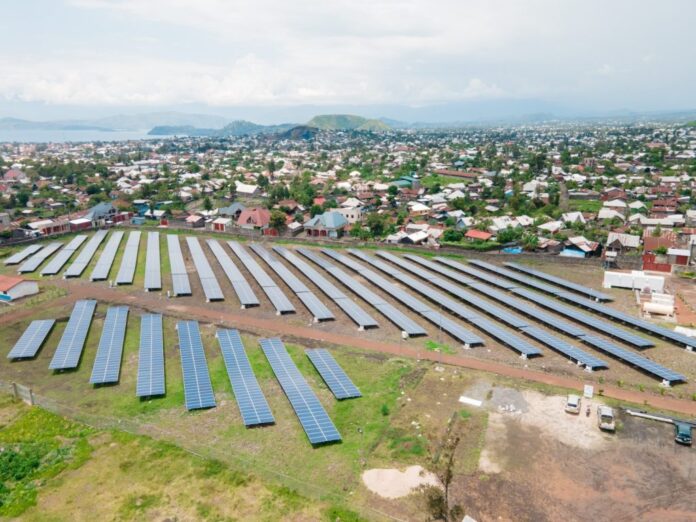The IFC invested $10 million in Nuru to expand access to renewable energy through mini-grid systems in the DRC. Nuru’s utility-scale “metro-grids” use cutting-edge technology and service, designed to provide reliable, round-the-clock renewable energy to communities in Eastern DRC.
Once completed, the installation at Bunia will be the largest off-grid solar hybrid project of its kind in Sub-Saharan Africa
Sérgio Pimenta, IFC Vice President for Africa, said the lender had funded African investments to the tune of $11.5 billion between July 1, 2022, and June 30, 2023, across 40 countries.
“Catalysing increased private sector innovation and financing for addressing climate change, bridging gender gaps, and empowering the next generation of startup leaders has been at the forefront of our work this past year and will continue to drive our engagements as we work with partners to create jobs and opportunities for more people,” VP Pimenta said.
In July, Nuru announced the successful close of over $40 million in Series B equity funding and anticipates the close of an additional $28 million in project finance by the end of the month. The $40 million was to enable Nuru to commence construction on 13.7 MWp of projects, which will significantly expand its existing operating assets in eastern Democratic Republic of the Congo (DRC) and help bridge the enormous energy gap in the country.
Less than 20% of the DRC’s population has access to energy, and with a rising energy demand projected for the future, Nuru’s innovative approach to renewable energy access unlocks the immense market potential across the country. The company’s utility-scale solar metrogrids, integrated with cutting-edge technology and services, are designed to provide 24/7 reliable and renewable energy to DRC’s urban communities, fostering climate resilience and sustainable development.
The $40 million Series B round in July was led by the International Finance Corporation (IFC), the Global Energy Alliance for People and Planet (GEAPP), the Renewable Energy Performance Platform (REPP), Proparco, E3 Capital, Voltalia, the Schmidt Family Foundation, GAIA Impact Fund, and the Joseph Family Foundation. Additionally, IFC’s equity investment includes financing from the Finland-IFC Blended Finance for Climate Program.
Following the Series B close, Nuru will begin work immediately on three transformational projects in Goma, Kindu, and Bunia, which will have a combined capacity of 13.7 MWp. The Bunia site will become the largest off-grid solar hybrid metrogrid in sub-Saharan Africa.
Nuru’s Series A was led by E3 Capital (formerly Energy Access Ventures) in 2018 together with EDFI ElectriFI, the EU-funded Electrification Financing Initiative, managed by EDFI Management Company. Their investment was catalytic in building Nuru’s current operating metrogrid portfolio in the cities of Goma, Beni, Tadu, and Faradje.
Nuru also announced initial investments in March from REPP, Proparco, and E3 Capital bridged a financing gap to bolster the Series B equity fundraise. REPP, which is funded by the UK’s Foreign, Commonwealth and Development Office (FCDO) and managed by Camco, Proparco, which is the private sector financing arm of Agence Française de Développement Group (AFD), and E3 Capital, which is a leading investor in low-carbon early-stage companies, each committed $500,000 in a convertible note round earlier in the year.
IFC Country Manager for the DRC, Malick Fall, said: “Expanding access to electricity is instrumental to supporting economic growth and improving living standards for people and businesses in the DRC. IFC’s support for Nuru will play a pivotal role in helping to bridge the energy access gap by using an innovative business model, new technology and more climate friendly power sources.”
In Tanzania, IFC launched ‘Anaweza: She Can’, a $10 million programme to empower more women across Tanzania to access financing, attain leadership positions in the private sector, and launch or grow businesses, including in agriculture. IFC’s programme aligns with the Tanzania Development Vision 2025, the National Five Year Development Plan III (2021/22-2025/26), Zanzibar Development Vision 2050, the National Gender Policy and its Strategy, and the Tanzania commitments on Generation Equality, which outlines steps to enhance human capital, empowerment and gender equality.




